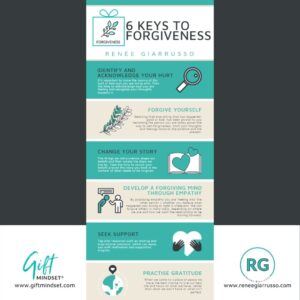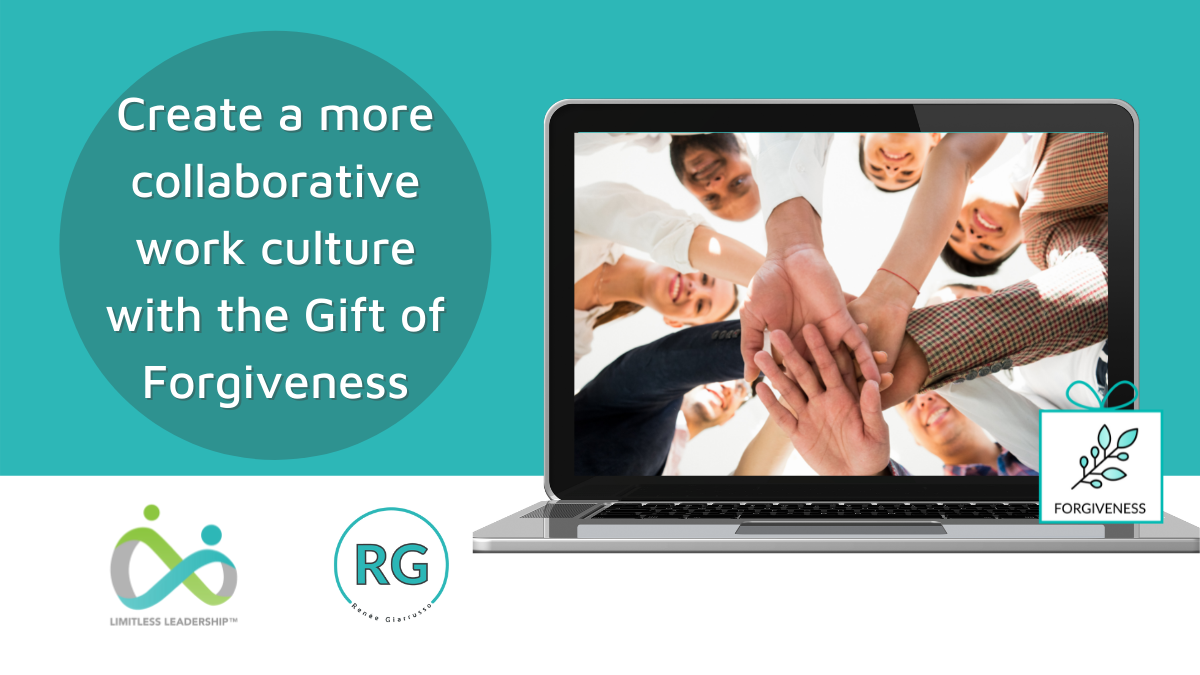Whether we practice forgiveness in the workplace or at home, forgiveness requires us to have a full heart. We need to be strong, open, brave, resilient, as well as show vulnerability and empathy. Brené Brown talks about these qualities belonging to ‘whole-hearted people’. Many people are too weakened by their hurt to be in a position to forgive. Consciously taking the right steps towards forgiveness will kick off the process of living life from a position of strength rather than weakness.
Psychologists define forgiveness as a deliberate and conscious decision to let go of or release feelings of resentment towards a person, a group or a situation. It is a process of letting go of hurt and anger, whether or not forgiveness is deserved. I think of forgiveness as both an emotion and a verb – a process we can all access.
When we come to forgive, it doesn’t mean we forget or condone what has happened. Instead, we forgive to create peace and space to move forward. Holding onto resentment is like poison, and every human deserves peace within. Forgiveness is rarely discussed in the workplace.
Imagine, though, if you could share your Gift of Forgiveness and the lessons you gleaned? Relationships would be truer and stronger, and this could lead to a more collaborative culture.
Forgiveness is giving up the hope that the past could have been any different, it’s accepting the past for what it was, and using this moment and this time to help you move forward. — Oprah Winfrey
Here are a few tips to go from a place of poison to peace; they will help you to unwrap your past, present or future Gifts of Forgiveness:
The 6 Keys to Forgiveness
To download a copy of the 6 Keys to Forgiveness Infographic, click here.

1. Identify and acknowledge your hurt
It’s important to know the source of the hurt or betrayal you are living with. Take the time to acknowledge how you are feeling and recognise your thoughts towards it.
2. Forgive yourself
Realising that everything that has happened, good or bad, has been pivotal to becoming the person you are today paves the way to self-forgiveness. Shift your thoughts and feelings towards the positive and the present.
3. Change your story
The things we tell ourselves shape our beliefs and then create the story we live by. Take the time to revisit your beliefs around the story you hold in the context of what needs to be forgiven.
4. Develop a forgiving mind through empathy
By practising empathy, you are ‘feeling into’ the other person – whether you believe what happened was wrong or right is irrelevant. We can forgive others in many ways, depending on where we are and how we want the relationship to be moving forward.
5. Seek support
Tap into resources such as reading and inspirational podcasts, which can equip you with motivation and supportive insights.
6. Practise gratitude
When we come to a place of peace, we have the best chance to live our best life and focus on what we have, rather than what we don’t have or what isn’t perfect.
Acceptance is the portal to forgiveness – taking the time to acknowledge and identify both the cause and our feelings allows us to choose how we want to forgive and what we need to do.
What do you need to do to unwrap and reveal your Gift of Forgiveness?
Lead to be Limitless…


